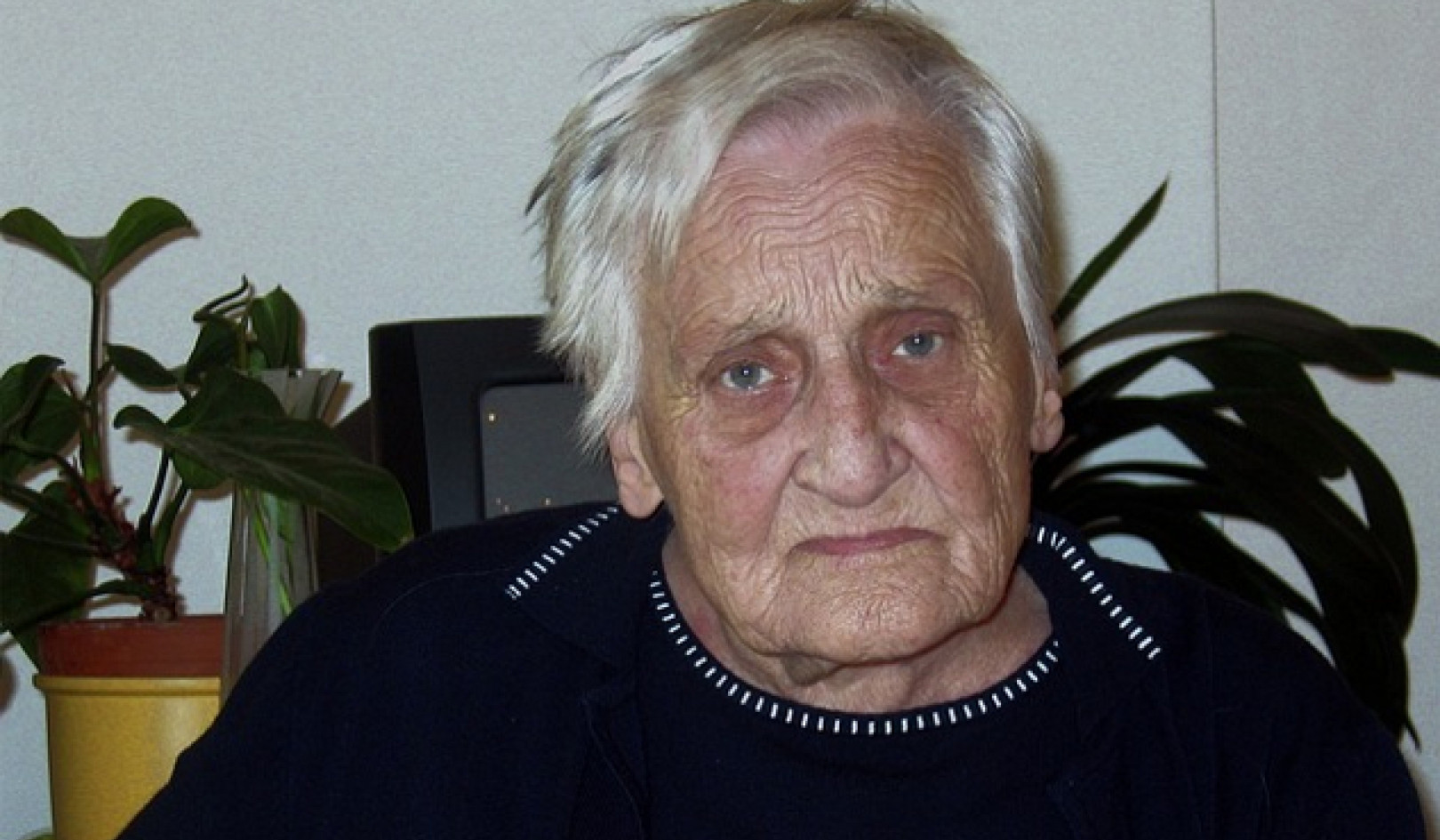
The doctors are on firm ground when they recommend meditation. They are backed up by hundreds, perhaps thousands, of scientific studies going back decades. I attended a medical conference recently where the doctor who spoke on meditation cited 212 references in his paper.
The jury has delivered its verdict. Meditation is not like the latest wonder herb from the Amazon. It's not a kind of faith healing based on hypnotic suggestion. If you are sick, meditation can help in measurable ways. If you are not sick, meditation will help you stay healthy. It works in two main ways: it helps the body relax quickly and it settles the overwrought mind.
Don't be surprised if your doctor says to you, "Have you considered meditation?" He's not some alternative quack. Each year I teach about 200 people -- a quarter of my intake -- on doctors' referrals.
Restoring Balance
Meditation works because it restores the body to a state of balance. This is technically called "homeostasis," in which the systems within the body are at rest or operating within sustainable limits. The muscle tone is just right; the heart and breathing rates are normal; the levels of gastric juices, blood sugar and acidity are within the ideal range, and so on.
The body is quite capable of operating outside the state of balance. We can run a marathon, for example, or eat a massive meal, without suffering unduly. However, we're stressing those systems in the body when this happens. If they stay stressed for too long, they get damaged and pathologies start to occur. In fact, sickness can be easily defined as a state of imbalance in one or more of the systems in the body.
The body is always striving to return to homeostasis. Not only do systems work best when in balance, but this is also the optimum state for self-repair and growth. The body puts away the groceries, tidies the house and does structural repairs only when we're relaxed during the day or asleep at night. By relaxing when we can during the day and de-stressing effectively at night, we help the body heal itself.
Stress and Relaxation Responses
The role of maintaining balance falls on the autonomic nervous system. This operates via two opposing functions, which we can call the stress response and the relaxation response.
The stress response is like pushing the accelerator flat to the floor. We get a lot of speed but quickly run out of gas. Adrenaline is the main hormonal instigator. Our muscles tighten, blood pressure and breathing rates rise, digestion stops and we burn a lot of energy fast. This often feels good as long as it doesn't last too long.
During the relaxation response, the reverse happens. Adrenaline levels fade, muscles soften, blood pressure and breathing rates drop and digestion resumes. We return to balance and burn energy at a sustainable rate.
Our bodies are extremely good at maintaining balance, so why do we still unexpectedly get sick? In theory, we could be in a balanced state all day long -- eating, working, exercising and resting well. If we kept this going all our lives, there is a good chance we would live to a hale and hearty old age.
But, being conscious animals, we frequently ignore the signs of stress and overrule the intelligence of our bodies. We get overexcited, push ourselves to the limits and lose all concept of a balanced life. Though we often grind to a halt out of exhaustion, we usually don't recover fully before plunging back into the fray.
We can also be mildly stressed for years at a time. Just to be 10 percent more stressed than we need to be can make us as prone to middle-aged illness as periodic extreme stress. Because mild continual stress is so common, we take it as "normal" and don't realize how insidious it is.
Effects of Chronic Stress
Stress affects every system of the body, pushing it beyond the level of sustainable function. High blood pressure leads to heart disease and kidney and respiratory failure. High metabolic rates lead to fatigue and cell damage. Muscular tension leads to physical pain and injury and poor circulation. Constricted respiration contributes to asthma and the lung infections that commonly take away the elderly. The disruption to the digestive system leads to a range of gastrointestinal problems.
The immune system in particular suffers when under stress, and a poor immune system affects everything. Many diseases seem particularly related to the malfunctioning of the immune system. It is not surprising that stressed people succumb to illnesses that healthy people shrug off lightly. Years of inner warfare have destroyed their defense capabilities.
Within minutes, meditation can temporarily reverse many of the indicators above. While you meditate, you're lowering blood pressure and breathing rates, muscle tension, adrenaline production and so.
This can be very beneficial for certain illnesses. Meditation has the most dramatic effects on people suffering from hypertension, insomnia, migraines, chronic pain and digestive and respiratory problems. While it occasionally acts as a miracle cure for a specific illness, it is more valuable in improving total body health. Let me explain how meditation affects the different systems in the body.
The Cardiovascular System
With some ailments such as cancer, the links between stress and health are somewhat indirect. With cardiovascular problems, however, the dynamics are obvious and the links are clear: stress is a major contributor to heart disease.
Heart attacks are dramatic, but the real culprit is years of hypertension, which day by day degrades the cardiovascular system. So what can you do to help -- besides diet, exercise and drugs? In brief, anything that helps you relax will deactivate the stress response and bring you back into balance. Quite simply, the more relaxed you are during the day, the more you care for your heart and arteries.
Effects of a Tight Musculature
The benefits of a supple musculature are almost impossible to overestimate. The muscles of a healthy child are soft, supple and strong. The ability of muscles to expand and contract fully, as they do in a child, is the epitome of good health. Every cell in the body benefits from healthy muscle function.
Chronically tight muscles burn a lot of energy to stay tight, so they get fatigued and we underuse them. Being stiff, they're prone to injury and many of us carry dozens of micro-injuries in places like the lower back.
Tight muscles also magnify the effects of stress on breathing and digestion. Both these systems operate on a rhythmic contraction and expansion of muscles. When muscles lock into contraction, these systems suffer.
So how does meditation help? It's very simple. Adrenaline raises muscle tone. It makes muscles contract. Meditating reduces adrenaline, and muscle tone fades. Thousands of big and small muscles throughout the body begin to soften within seconds of starting to meditate. It's not a mystery. If you feel your face or shoulder muscles starting to droop, you can be confident it's happening elsewhere as well.
The Upset Tummy
When the body goes into fight-or-flight mode, it switches off the digestion system. Secretions of saliva and digestive juices dry up and the muscles in the gut spasm and lock. The shop is closed. Nothing will move until the crisis is felt to have passed.
Hundreds of studies have proven the connection between stress and the gut. Anxious people commonly suffer from ulcers, heartburn, gas, pain, diarrhea and/or constipation. Stress results in excess hydrochloric acid production and disturbs other digestive juices. If you get several of these symptoms regularly, you could say you have Irritable Bowel Syndrome.
One reason for constipation is that peristalsis is inhibited when we are stressed. Peristalsis is a soft, rhythmic expansion and contraction of gut muscles that squeezes food down the tract. When you're tense, however, the whole tubular system goes into contraction and nothing moves.
As soon as you meditate, you can feel yourself reversing this pattern. As you relax you may start salivating more. This is a clear sign that the digestive system is coming back to life. People often have to swallow at a certain point in their meditation. Another sign is a gurgling stomach. People who are constipated often find they are ready for a bowel movement after meditating.
Immune Function under Stress
 The body only repairs itself when you are relaxed during the day or asleep at night. Stress produces excess cortisol, which is a potent immunosuppressant. It also produces other indicators of reduced immune function that are too complex to detail here.
The body only repairs itself when you are relaxed during the day or asleep at night. Stress produces excess cortisol, which is a potent immunosuppressant. It also produces other indicators of reduced immune function that are too complex to detail here.
The immune system is like a standing army constantly engaged in guerrilla warfare on the borders. It never rests. Like any army under constant pressure, it get exhausted, runs out of supplies, gets am bushed from behind and lacks time to regroup and consolidate. The epidemiological evidence supports what we know anyway: if you're stressed, you're much more vulnerable to quite mild pathogens like the flu. If this is the case, you'll also be struggling to cope with bigger problems.
The Roots of Fatigue
The biological purpose of the stress response is to give us energy to burn. All those muscles are wired up, burning a huge amount of energy that's going nowhere. A bricklayer enjoying his work will actually burn less energy than a chronic worrier who sits in a chair all day.
If we burn energy fast, we burn out. Stress and worry inevitably lead to exhaustion. And while we may collapse into sleep, we're unlikely to sleep well enough or long enough to recover fully. If we wake feeling awful and then plunge back into the stress zone, the cycle continues.
Meditation is sometimes described as energy conservation. By doing something simple (i.e., focusing), and watching thoughts rather than reacting to them, you save energy. We usually call this being relaxed. The more hours during the day that you're relaxed, the more energy you save.
Insomnia
If you're relaxed during the day, you also get maximum benefit from your sleep at night. If you fall asleep from sheer exhaustion, you're likely to be mentally turbulent during the night. People recognize this when they wake at two in the morning with their minds racing.
Meditation helps insomniacs in many ways. It detaches you from thinking before you go to sleep. If you meditate in bed, you'll usually go to sleep rapidly. If you wake in the night, you can detach from the thoughts that are keeping you awake. And even if you fail to fall asleep again, you can be relaxed in that state (i.e., conserving energy) rather than fretting (i.e., burning energy).
Sleep researchers are suggesting that maybe 90 percent of us, with the exception of the young and the elderly, are constantly sleep-deprived. If we want to be healthy, we could all do with more and better quality sleep.
My students often say they have their best sleeps on the night of their meditation class. It is sad, but many of us have to relearn how to sleep and to value our rest. Otherwise we face a lifetime of periodic exhaustion with its accompanying feelings of lethargy, helplessness and despair.
Living Comfortably with Pain
Some of my best students are those who suffer chronic pain. They have good motivation to practice and they see the results immediately. They commonly say meditation is the only thing that is guaranteed to work.
Meditation doesn't get rid of the pain or block it out. These are two impossible scenarios. Instead, it helps us to "just watch" the pain with detachment. The Stress Reduction Program at the University of Massachusetts has had phenomenal results in reducing a patient's perception of pain in this way. If the "pain" a person feels is 20 percent pure sensation and 80 percent emotional amplification, then watching the pain with detachment completely changes its character.
Anxiety, Panic and Phobias
Meditation is the perfect antidote to anxiety, panic and phobias. They are all the result of the stress response locked in overdrive. Meditation, as a way of consciously relaxing, disarms the stress response that causes the problem.
Helping with Chronic Illness
We occasionally hear of "miracle" cures through meditation, and there is little doubt they do occur. People boast, "Five years ago, the doctors gave me six months to live, but I'm still here." To be fair to doctors, they're usually quite accurate in their predictions, but they work on the law of averages. There will always be those at the extremes who unexpectedly recover from (or unexpectedly succumb to) illnesses.
So what was the secret of those who unexpectedly recover? This is notoriously hard to pin down, but they usually have a healthy and well-balanced optimism that doesn't slip into denial. Furthermore, they commonly take control of their treatment and make lifestyle changes to support the process.
Meditation can be a linchpin to these changes. At the very least, it helps us cope with pain and distress. It also helps us see the dramas around our illness with some detachment and emotional control.
Nonetheless, its direct physical benefits remain enormous. People with cancer often ask me, "How can I boost my immune system?" This question usually comes from the rather simplistic attitude that positive thoughts will help rally the troops.
Meditation acts in a more comprehensive way. The battle between the immune system and an illness is a drawn-out war of attrition, like World War Two. Victory goes to the side with greater industrial capacity and access to raw materials. The wins and losses occur on the front line, but the war is actually won in the factories and farms and scientific laboratories.
While meditation has specific effects on the immune system, its real benefits are much wider. Meditation will help you digest your food better, improve blood circulation and heart function, sleep better, cope with pain and distress better and enjoy life more despite your illness.
If your body as a whole is functioning in a healthy and relaxed manner, it's got the resources to fight a specific illness. Since meditation, with its ability to restore and maintain a general state of homeostasis, acts as the command post, this may be all you need to turn around a serious illness.
Reprinted with permission of the publisher,
Ulysses Press. ©2001, 2007. http://ulyssespress.com
This article is excerpted with permission from the book:
Teach Yourself to Meditate in 10 Simple Lessons: Discover Relaxation and Clarity of Mind in Just Minutes a Day
by Eric Harrison.
 A READY-MADE KIT. JUST ADD TIME. If you are willing to invest 15 minutes a day, Teach Yourself to Meditate in 10 Simple Lessons can help you develop life-long skills that will improve your health, happiness and peace of mind. The course in this book doesn't require you to follow a complex set of rules; rather, it teaches you the core practices, including: Breathing, Posture, Mantras, Body Awareness, Visualization, Detachment.
A READY-MADE KIT. JUST ADD TIME. If you are willing to invest 15 minutes a day, Teach Yourself to Meditate in 10 Simple Lessons can help you develop life-long skills that will improve your health, happiness and peace of mind. The course in this book doesn't require you to follow a complex set of rules; rather, it teaches you the core practices, including: Breathing, Posture, Mantras, Body Awareness, Visualization, Detachment.
Info/Order this book (newer edition/different cover than pictured above).
About the Author
Trained in the Buddhist traditions of Burma and Tibet, Eric Harrison has practiced meditation for more than thirty years. After one particularly intensive retreat, Eric was encouraged by the monks to begin teaching meditation to others "in his own way." Over the years he has developed a method adapted to Western culture, one that eschews mysticism while emphasizing meditation's practical effects. As the director of Perth Meditation Centre, he has worked closely with local doctors and patients to develop appropriate meditation programs for particular ailments. Eric lives in Perth, Australia.
























